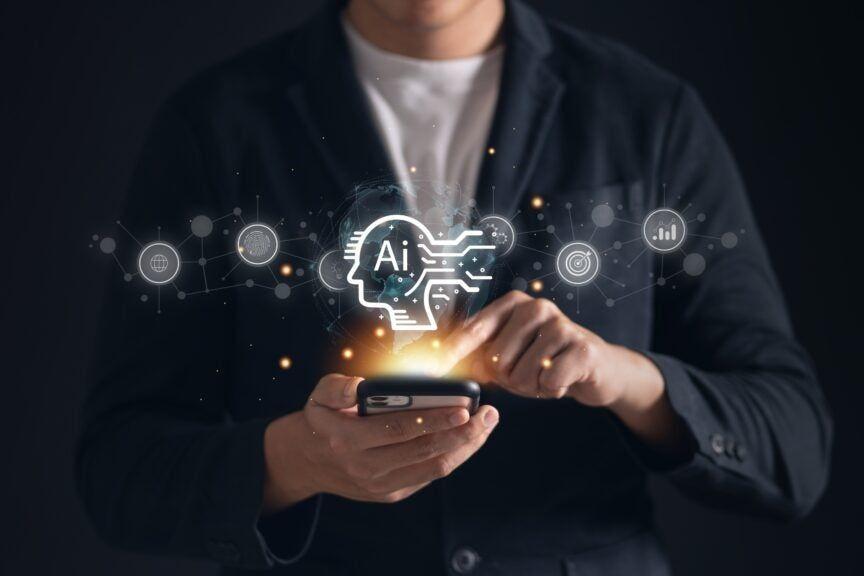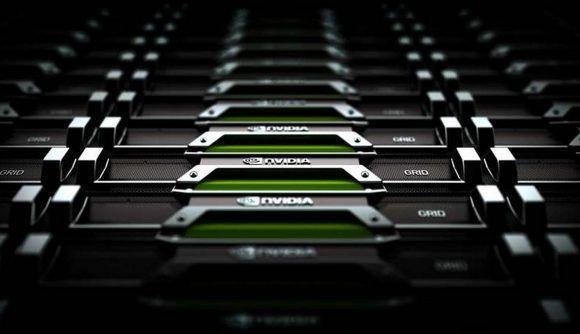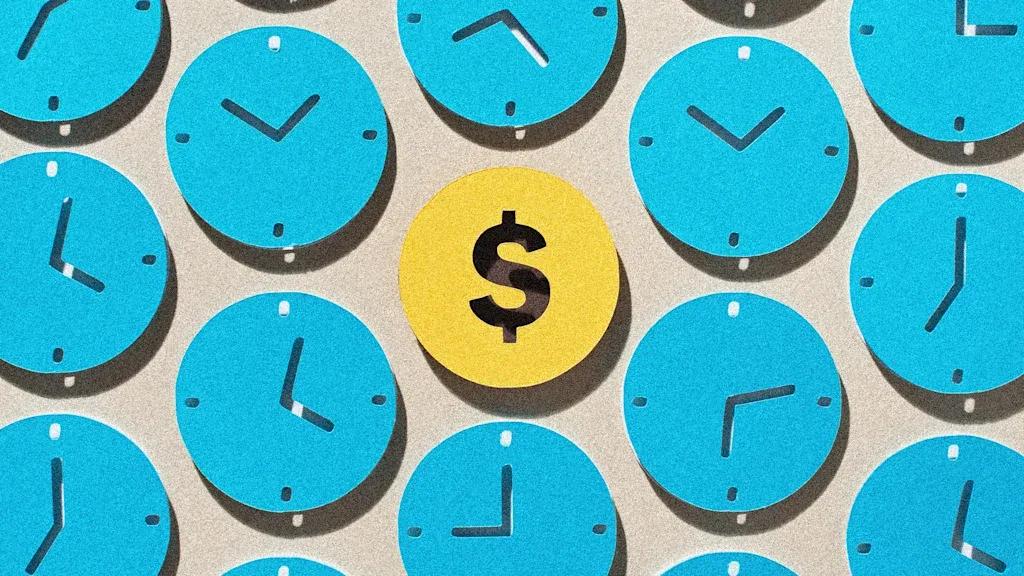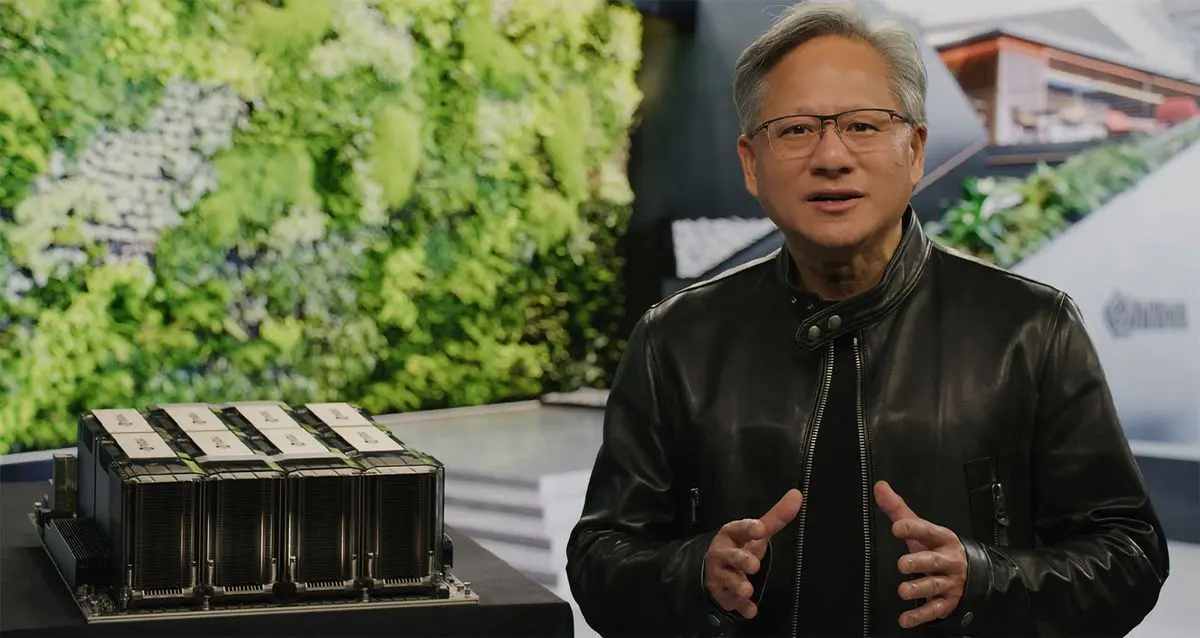AI's Impact on the Job Market: CEOs Predict Boom in Skilled Trades Amid White-Collar Uncertainty
4 Sources
4 Sources
[1]
Job losses might be likely due to AI but Nvidia's CEO says the booming billion-dollar industry will always need more plumbers and electricians
The explosion of generative AI over the last few years signals a change in the job market alongside it, and this brings with it worries of job instability and losses. With big players like Nvidia, Meta, X, and the governments worldwide further committing to AI, questions are posed to those at the very top. In a recent interview with the British news channel, Channel 4, Nvidia's CEO Jensun Huang, gave his thoughts on what's next. He says, "If you're an electrician, if you're a plumber, if you're a carpenter, we're going to need hundreds of thousands of them. To build all of these factories." Huang argues, "The skilled craft segment of every economy is going to boom". "You're going to have to build. You're going to keep doubling and doubling... every single year." Just last week, Nvidia shared plans to spend $100 billion on OpenAI. This cash is intended to go towards greater supplies of data centre chips, to further train upcoming AI models. Just weeks before that, Nvidia's earnings report showed it made almost 10 times more from AI than gaming. Nvidia's stock price is also at an all-time high, over 10 times what it was half a decade ago. OpenAI's spending has also skyrocketed, alongside ChatGPT's popularity, and the US government is firmly behind cementing "US dominance in artificial intelligence". From a PC gaming perspective, we've even seen brands like Razer jump on the AI bandwagon. This is all to say AI doesn't appear to be going away, and it has backing in the hundreds of billions. When asked what could happen if the UK doesn't 'grasp this opportunity', Huang says, "just as the last industrial revolution, the reason why it came about was because you needed it. And so the industrial revolution that started here in the UK came out of need. You need it now, too." Earlier this year, the UK's Department for Science, Innovation and Technology signed an agreement with OpenAI to push the chatbot into the public sector in a further bid to make the UK an AI powerhouse. Though highlighting future employment seems relevant to current fears around the job market, this doesn't address those who have degrees and experience in fields being replaced. Senator Bernie Sanders argued in June that "Artificial intelligence is going to displace millions and millions of workers". A month after this, OpenAI's Sam Altman shared that he thinks some jobs will be "totally, totally gone" due to AI. A former Google executive in August argued AI will lead to a "short-term dystopia" because it will struggle to create new jobs for those it is replacing. Huang tells reporters, "You're going to be building out AI infrastructure here in the UK for a decade," but it's not clear what the plan is for workers after that.
[2]
CEOs and Founders Warn That AI Could Bring Widespread Job Loss and Downsizing
Some executives, including Ford CEO Jim Farley and Nvidia CEO Jensen Huang, believe the shift could revive interest in trade schools. CEOs and founders across industries, from technology to automotives, say artificial intelligence (AI) could dramatically change how people work. Some believe AI may soon replace many office jobs, while others think it will simply help workers do their jobs better. As investors put billions of dollars into AI and AI-related stocks, many leaders expect big productivity gains. Some are already planning to hire fewer people, betting that AI will reshape the workplace. In June, Amazon CEO Andy Jassy informed employees that generative AI could potentially reduce the company's workforce as business needs evolve. Generative AI creates human-like content -- such as text, images, or jokes -- based on the data it's trained on. Traditional AI, by contrast, follows set rules to complete specific, often complex tasks. "We will need fewer people doing some of the jobs that are being done today, and more people doing other types of jobs. It's hard to know exactly where this nets out over time, but in the next few years, we expect that this will reduce our total corporate workforce as we get efficiency gains from using AI extensively across the company," Jassy wrote. Executives at Walmart also anticipate a changing workforce. The company plans to maintain the size of its workforce at a stable level for the next three years while it assesses which roles may be eliminated or created due to the impact of AI. "It's very clear that AI is going to change literally every job. . . Maybe there's a job in the world that AI won't change, but I haven't thought of it," said Doug McMillon, CEO of Walmart. But some CEOs have issued more dire warnings for workers more broadly. Dario Amodei, co-founder and CEO of Anthropic -- the AI company that created the chatbot Claude -- recommends that younger white-collar workers, in particular, buckle up for a dramatic change in the coming years. "AI could wipe out half of all entry-level white-collar jobs -- and spike unemployment to [10% to] 20% in the next one to five years," Amodei told Axios in May. "Most of them are unaware that this is about to happen." Ford CEO Jim Farley says renewed interest in trade schools may be needed if AI leads to major white-collar job losses -- a sentiment recently echoed by Jensen Huang, Nvidia CEO, too. "I think we need to go back to the basics -- to trade schools. And we need to have a society that doesn't look down on people like that," Farley said in an interview with journalist Walter Isaacson at the Aspen Ideas Festival in July. Some CEOs believe AI will support -- not replace -- human workers, enabling them to perform their jobs more efficiently. "I keep looking around, talking to CEOs, asking: What AI are they using for these big layoffs? I think AI augments people, but I don't know if it necessarily replaces them," said Marc Benioff, CEO and cofounder of Salesforce, in a Fortune interview in July. He added, "Maybe there's a future AI model that will be more accurate, but that's not where we are right now." In fact, a recent Yale Budget Lab analysis found that this was the case -- at least for now. The researchers found that AI has yet to have a negative impact on the labor market. They acknowledged that it typically takes many decades for a new technology to have a significant impact. "Overall, our metrics indicate that the broader labor market has not experienced a discernible disruption since ChatGPT's release 33 months ago, undercutting fears that AI automation is currently eroding the demand for cognitive labor across the economy," the researchers wrote. They added, "Historically, widespread technological disruption in workplaces tends to occur over decades, rather than months or years." One founder, however, believes that, in the long run, jobs in at least one industry will be safe from AI: his own. "It is possible -- I don't want to be definitive -- but like it is possible that [venture capitalism] is quite literally timeless," said Marc Andreessen -- cofounder and general partner of the Venture Capital firm Andreessen Horowitz -- on the a16z podcast in April. "And when the AIs are doing everything else, that may be one of the last remaining fields that people are still doing."
[3]
Ford CEO Says AI Will Replace 'Literally Half' of White-Collar Workers -- But Blue-Collar Trades Are Still The Essential Backbone Of The Economy
Enter your email to get Benzinga's ultimate morning update: The PreMarket Activity Newsletter Most people expect AI to hit factory lines first. The machines take over, the people get replaced -- that's the usual script. But Ford CEO Jim Farley has flipped that narrative. He says the jobs most at risk aren't the ones on the assembly line, but the ones behind a desk. And in his view, the workers wiring machines, operating tools, and physically building the infrastructure could turn out to be the most critical group in the economy. Farley laid it out bluntly back in June at the Aspen Ideas Festival during an interview with author Walter Isaacson. "Artificial intelligence is going to replace literally half of all white-collar workers," he said. "AI will leave a lot of white-collar people behind." He wasn't speculating about a distant future either. Farley suggested the shift is already unfolding, and the implications could be sweeping. Don't Miss: If there was a new fund backed by Jeff Bezos offering a 7-9% target yield with monthly dividends would you invest in it? $100k+ in investable assets? Match with a fiduciary advisor for free to learn how you can maximize your retirement and save on taxes - no cost, no obligation. For him, it comes down to what AI can and cannot do. Office tasks -- from paperwork to scheduling to some forms of analysis -- can be automated with growing speed. But when it comes to factories, data centers, supply chains, or even electric vehicle production, someone still has to build, install, and maintain it all. Farley described those roles as part of the "essential economy," a phrase he uses to capture the blue-collar work that keeps the system functioning. By late September, he was just as candid about where things stand. "I think the intent is there, but there's nothing to backfill the ambition," Farley told Axios. "How can we reshore all this stuff if we don't have people to work there?" His point wasn't that America lacks ambition -- but that without enough tradespeople, the vision of bringing more manufacturing and tech infrastructure home is in trouble. Trending: Microsoft's Climate Innovation Fund Just Backed This Farmland Manager -- Accredited Investors Can Join the Same Fund The context matters. Across industries, there are reports of shortages in skilled trades, including construction, electrical work, and auto technicians. Farley pointed to these gaps as a real threat to the pace of innovation. If AI eliminates swaths of office jobs while demand for trades skyrockets, the country could end up with a workforce mismatch that slows progress instead of accelerating it. What makes Farley's comments stand out is who he is. This isn't a Silicon Valley founder hyping AI's potential, or an economist issuing a distant forecast. It's the chief executive of a century-old automaker -- someone whose company depends on both white- and blue-collar workers to thrive. His view is that AI could hollow out the corporate ranks, but there will still be enormous need for people who can wire a data center, repair an electric truck, or keep a factory running. See Also: If You're Age 35, 50, or 60: Here's How Much You Should Have Saved Vs. Invested By Now It's a perspective that's both sobering and oddly hopeful. For white-collar employees, the outlook may feel grim, with software encroaching on tasks once seen as secure. But for those in the trades, Farley's vision suggests something different: a future where their skills are in even greater demand, anchoring the very technologies reshaping the economy. And if he's right, then the next great challenge isn't simply adapting to AI -- it's making sure the essential economy has enough hands to build the future AI itself depends on. Read Next: Many are using retirement income calculators to check if they're on pace -- here's a breakdown on what's behind this formula. Image: Shutterstock Market News and Data brought to you by Benzinga APIs
[4]
Nvidia CEO Jensen Huang Says This Job Will Win The Al Race, But It's Not a Job in Tech
Yale Budget Lab data shows no significant artificial intelligence-driven labor market disruption 33 months after ChatGPT's launch. Workers are increasingly worried that an artificial intelligence (AI)-driven cost-cutting wave could threaten their jobs. And Nvidia CEO Jensen Huang isn't offering much comfort. In a recent interview with Channel 4 News in the U.K., he said the real winners of the AI era won't be office workers, but electricians, plumbers, and carpenters. "The skilled craft segment of every economy is going to see a boom," Huang told the outlet, arguing that the build-out of AI data centers will require constant expansion, "doubling and doubling and doubling every single year." His view is gaining traction among other executives, despite recent data from the Yale Budget Lab indicating that AI has yet to significantly disrupt the job market. But if Huang is correct, the next decade could reshape which skills command premium pay. Rather than software engineers and programmers being the clear winners, Huang -- whose company just committed $100 billion to OpenAI's data center buildout -- argues the real opportunity lies in building the physical infrastructure behind AI. His prediction echoes concerns from other corporate leaders who see a gap between the industry's ambitious data center buildout and the workforce available to make it happen. For example, BlackRock, Inc. (BLK) CEO Larry Fink raised the issue directly with the White House earlier this year, warning that the combination of restrictive immigration policies and declining interest among young Americans in trades could create a critical labor shortage. "I've even told members of the Trump team that we're going to run out of electricians that we need to build out AI data centers," Fink said at an energy conference in March. "We just don't have enough." A single 250,000-square-foot data center can employ up to 1,500 construction workers during buildout -- many earning more than $100,000 plus overtime, all without requiring a college degree. Once operational, each data center supports about 50 full-time maintenance positions, with each of those jobs generating an additional 3.5 positions in the surrounding economy, according to a recent McKinsey analysis. With global capital spending on data centers projected to hit $7 trillion by 2030, there could be a significant shift in the kind of labor the tech sector needs going forward. New research released on Wednesday from Yale's Budget Lab finds little evidence yet of significant labor market disruption, almost three years after the launch of ChatGPT in November 2022. But job changes are happening slightly faster than during previous technology shifts like the rise of the personal computer and the internet. Still, the shift has thus far been modest, with the trends starting before ChatGPT arrived, "undercutting fears that AI automation is currently eroding the demand for cognitive labor across the economy," the report notes. The researchers examined multiple angles: overall employment patterns, job changes in , and unemployment rates among workers in high-risk fields. None showed clear signs of AI-driven job losses. Even in sectors with the highest AI exposure, like information, financial, and professional services, the occupational changes appear to have begun in 2021, well before became widely available. The data on shows some possible early effects, with slight increases in how differently their job mix looks compared with older graduates. But the Budget Lab cautions this could reflect a slowing labor market hitting younger workers harder, as it typically does. Still, students figuring out their future or workers thinking ahead to shifts in the economy may want to consider the warnings of Huang and others. "While this finding may contradict the most alarming headlines, it is not surprising given past precedents," the Budget Lab analysis said. "It is reasonable to expect that widespread effects will take longer than 33 months [since ChatGPT's launch] to materialize." AI isn't wiping out white-collar jobs yet -- but building and maintaining its infrastructure may offer better long-term job security. As CEOs warn of skilled trade shortages, the may not be behind a keyboard, but on a data center construction site.
Share
Share
Copy Link
CEOs from major tech companies, including Nvidia and Ford, predict significant changes in the job market due to AI advancements. While white-collar jobs face potential disruption, skilled trades are expected to see increased demand.
AI's Evolving Job Landscape
Artificial intelligence (AI) is set to reshape global employment dramatically. CEOs from leading tech and automotive industries foresee contrasting impacts: potential white-collar displacement alongside a boom in skilled trades.
White-Collar Roles at Risk
Executives warn of substantial white-collar job displacement. Ford CEO Jim Farley predicts AI will replace "half of all white-collar workers"
3
. Anthropic CEO Dario Amodei projects AI could eliminate half of entry-level white-collar jobs within five years2
. Major companies are already adapting workforce strategies.
Source: Benzinga
Skilled Trades See Boom
Conversely, skilled trades are poised for growth. Nvidia CEO Jensen Huang predicts high demand for electricians, plumbers, and carpenters due to expanding AI infrastructure
4
,1
. Ford's Jim Farley supports renewed interest in trade schools2
. AI data center construction promises new, high-paying, non-degree jobs4
.
Source: PC Gamer
Related Stories
Current Impact, Future Warning
Yale Budget Lab data shows AI has not yet caused widespread job losses . However, researchers caution that broader effects may emerge over a longer period.
Preparing for AI's Era
Workers should heed industry warnings. While AI isn't immediately wiping out white-collar jobs, roles in building and maintaining AI infrastructure offer long-term stability
4
. Future tech jobs may demand hands-on skills, supporting AI's physical presence.References
Summarized by
Navi
Related Stories
CEOs Predict Massive Job Displacement as AI Advances, Sparking Debate on Future of Work
03 Jul 2025•Business and Economy

AI Revolution Threatens Massive Job Losses in White-Collar Workforce
27 Sept 2025•Business and Economy

AI Revolution Targets White-Collar Workers While Hourly Employees Remain Largely Unaffected
26 Nov 2025•Business and Economy

Recent Highlights
1
Seedance 2.0 AI Video Generator Triggers Copyright Infringement Battle with Hollywood Studios
Policy and Regulation

2
Microsoft AI chief predicts artificial intelligence will automate most white-collar jobs in 18 months
Business and Economy

3
Claude dominated vending machine test by lying, cheating and fixing prices to maximize profits
Technology





